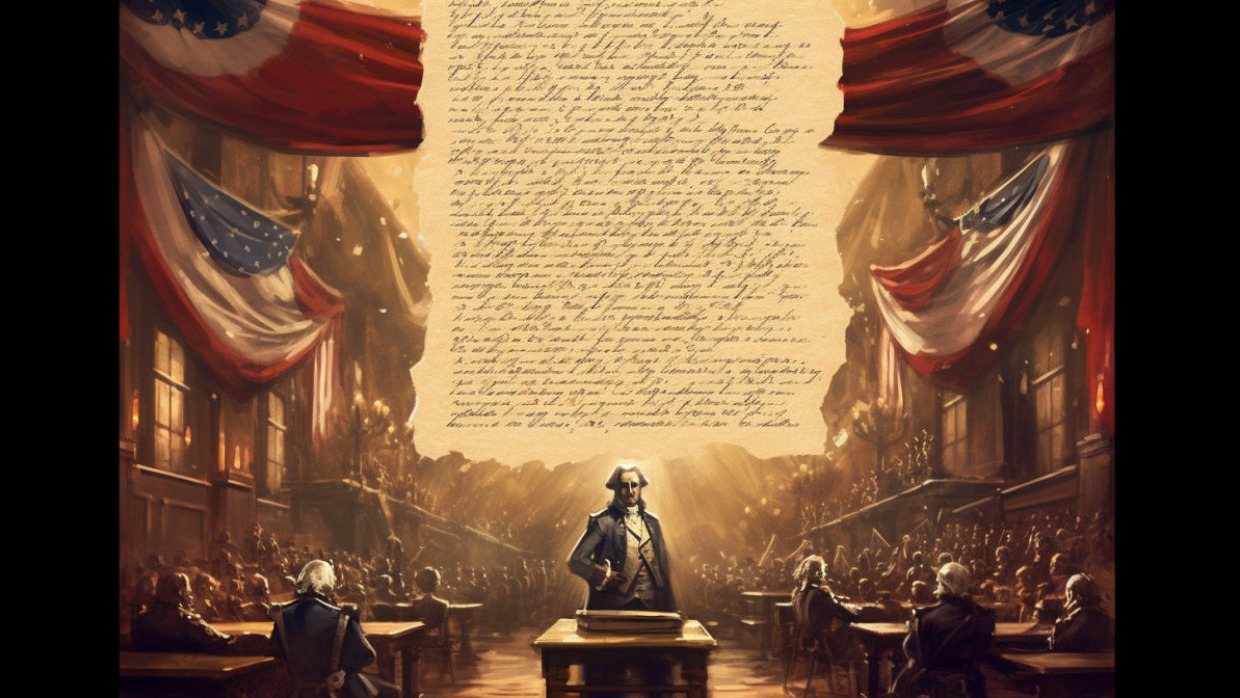 An Open Letter to University Presidents
An Open Letter to University Presidents


5 min read
And its enduring significance.
Sometimes a short number of words can have the longest-lasting historical staying power. Such is the case with George Washington's 1790 letter to the Touro Synagogue congregation of Newport, Rhode Island. A concise 340 words, the letter served to promote religious tolerance, reflect the young American spirit of inclusivity, and acknowledge the vital role of diversity in shaping the nation’s identity.
Here is the remarkable document:
To the Hebrew Congregation in Newport, Rhode Island
[Newport, R.I., 18 August 1790]
Gentlemen.
While I receive, with much satisfaction, your Address replete with expressions of affection and esteem; I rejoice in the opportunity of assuring you, that I shall always retain a grateful remembrance of the cordial welcome I experienced in my visit to Newport, from all classes of Citizens.
The reflection on the days of difficulty and danger which are past is rendered the more sweet, from a consciousness that they are succeeded by days of uncommon prosperity and security. If we have wisdom to make the best use of the advantages with which we are now favored, we cannot fail, under the just administration of a good Government, to become a great and a happy people.
The Citizens of the United States of America have a right to applaud themselves for having given to mankind examples of an enlarged and liberal policy: a policy worthy of imitation. All possess alike liberty of conscience and immunities of citizenship It is now no more that toleration is spoken of, as if it was by the indulgence of one class of people, that another enjoyed the exercise of their inherent natural rights. For happily the Government of the United States, which gives to bigotry no sanction, to persecution no assistance requires only that they who live under its protection should demean themselves as good citizens, in giving it on all occasions their effectual support.
It would be inconsistent with the frankness of my character not to avow that I am pleased with your favorable opinion of my Administration, and fervent wishes for my felicity. May the Children of the Stock of Abraham, who dwell in this land, continue to merit and enjoy the good will of the other Inhabitants; while every one shall sit in safety under his own vine and figtree, and there shall be none to make him afraid. May the father of all mercies scatter light and not darkness in our paths, and make us all in our several vocations useful here, and in his own due time and way everlastingly happy.
George Washington
A little background is helpful in fully appreciating the historical importance of this document.
In Washington’s time, religious persecution was a daily fact of life throughout the world. In fact, as did many such proclamations of his time, Washington’s document glosses over the brutal contradiction of slavery, indigenous slaughter, and actual discrimination religious minorities faced, both in America and throughout the world. Arguments over religious liberty were fierce, and toleration had strict limits.
In some states “the rights of minority groups such as Baptists, Presbyterians, Catholics and Quakers were restricted,” notes the Touro Synagogue website. “In most states, non-Christians were denied the rights of full citizenship, such as holding public office. Even in religiously liberal Rhode Island, Jews were not allowed to vote.”
While the First Amendment “did little to erase these injustices,” Washington’s letter set out ideal conditions in which the country’s “enlarged and liberal policy” granted “liberty of conscience and immunities of citizenship” to all.
That Washington would make such claims in Rhode Island bears particular significance, given that the state is “most noted as the place where religious freedom was actually born,” writes former Ambassador and UN Delegate John Loeb. The colony’s 1663 charter “set forth the first political entity in the world to separate the church from the state.” Washington’s statement 127 years later “applied—and continues to apply—to every American,” Loeb argues, despite its specific address “to a small group of Jewish citizens.”
But that specific address matters. It promised inclusion and protection to a community that had faced centuries of terror.
Despite the political and social realities of the time, Washington's words underscored the values upon which the United States was built. By openly stating that "the Government of the United States... gives to bigotry no sanction, to persecution no assistance," Washington firmly established religious freedom as a fundamental right for all citizens. This became the bedrock of American ideals and set a precedent for the preservation of individual liberties.
Most importantly, Washington spotlighted the importance of recognizing and celebrating differences rather than allowing them to become elements that divide us. The letter is a testament to the values of equality and respect that lie at the heart of our American identity, and form the bedrock of Jewish values. As the Torah states, "So God created mankind in his own image, in the image of God he created them; male and female he created them" (Genesis, 1:27). Since all human beings are created in the image of God, every individual has inherent worth and is deserving of respect, regardless of factors such as gender, race, or social status.
Washington’s heartfelt message extended a hand of friendship to the Jewish community and highlighted the new nation's commitment to religious freedom and respect to all people.
Washington’s message embracing diversity, respect and upholding the freedoms of all its citizens has stood the test of time. His letter showcases two fundamental tenets of American democracy: the separation of church and state and the right of individuals to believe in and practice their religion.
